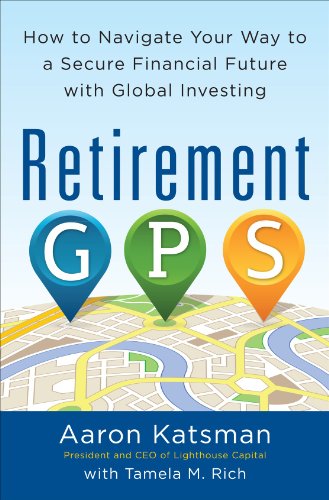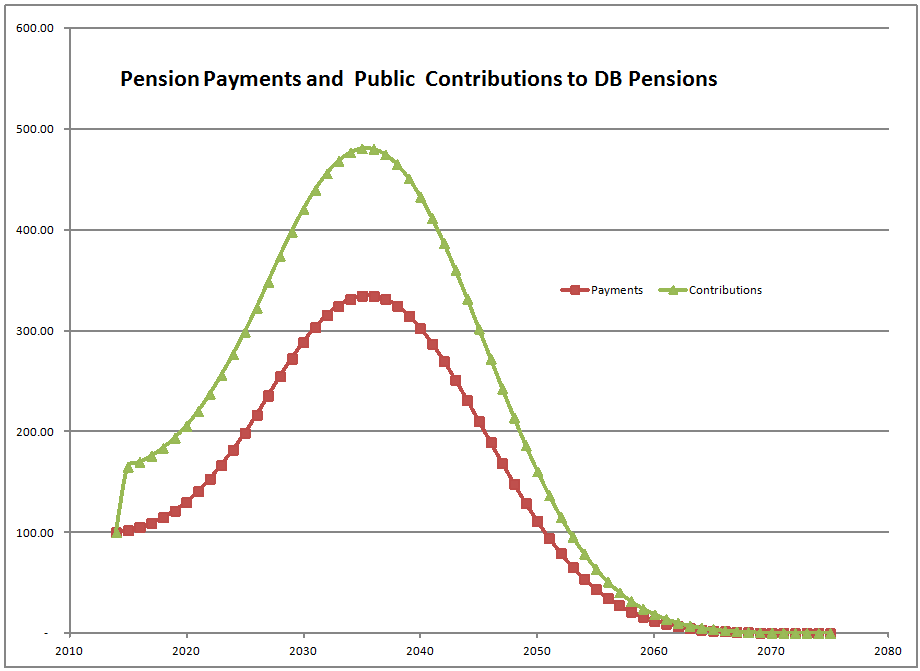Book Review: Kentucky Fried Pensions
 This book takes you through the corruption in the Kentucky Retirement System. ?It has the dubious distinction of being the worst-funded municipal pension system in the US, leaving aside Puerto Rico.
This book takes you through the corruption in the Kentucky Retirement System. ?It has the dubious distinction of being the worst-funded municipal pension system in the US, leaving aside Puerto Rico.
This book is very well-researched for three?reasons:
1) The author served one four-year term on the board of the Kentucky Retirement System, so he has insider knowledge.
2) The author is an expert on pensions — he has worked in this area for over 25 years. ?He also holds a CFA Charter, which demonstrates his knowledge in investments, and his commitment to ethics in investing.
3) The author extensively cites his findings, giving nearly 600 endnotes in an otherwise 256-page book.
The Kentucky Retirement System is not a victim of incompetence alone, but of fraud, political favoritism, and structured neglect. ?The structured neglect is probably the most serious matter.
For years, Kentucky would not pay its full actuarially required contribution to the retirement system. ?Now, you can’t argue with the math, though you can argue with assumptions. ?Not making the full payment persistently will leave a pension plan weakly funded. ? As the author points out, it is a quiet means of borrowing against the future, and at a far higher rate than Kentucky could borrow in the municipal bond market.
This is the product of a broken political culture that only cared about the present:
1) Keeping current taxes low
2) Spending more than taxes
3) Politicians accepting bribes campaign contributions from those gaining pension business from the State of Kentucky.
4) Board members that would not enforce thorough audits.
5) Board members that would not seek out investment experts for their board.
6) Politicians that would appoint weak board members that were political cronies.
7) Awarding investment mandates to political cronies, where placement agents would earn disproportionate sums.
8 ) And more…
If you read this, you will wonder how a municipal pension plan could get screwed up so badly. ?My answer is this — the political culture of the state tolerates corruption, so it grows like a weed in obscure places like the Kentucky Retirement System.
On the Rating Agencies, Etc.
The book asks the question as to why the rating agencies were complicit on municipal pensions, waking up late to the problems. ?My answer is simple. ?The rating agencies have never hired many actuaries, and as such did not consider what is obvious to any actuary that I know. ?They came to the game late, and that is normal for the rating agencies — if there has not been a failure from a given factor, their models will not have that factor. ?That’s normal for most of us, because few of us can envision failures that have never happened before.
Few are like Buffett, who said, “We’re paid to think about things that can’t happen.” ?That is the sound of one hand clapping, and few can hear it.
Never allege conspiracy, when mere incompetence will do. ?Few saw the housing bubble, and many denied it, including the present and incoming Fed Chairmen. ?Incompetence is pervasive; we should be surprised when things go well.
On Pension Obligation Bonds, we should note that they are a dumb idea, and that every municipality that has tried it ended up regretting it. ?It is hard enough to fund pensions without borrowing money; it is much harder to do after borrowing money.
Quibbles
The main problem with the book is that it needed a better editor. ?It reads like a series of essays that are self-contained, because much material is repeated that could have been eliminated.
Secondarily, the book takes a position that pension benefits can’t be cut. ?That is not true. ?It may take constitutional changes to do so, but in a democracy, anything can be done. ?We could repeal the prohibition against ex post facto laws on a basis limited to pensions.
I say this because many municipal unions pressed for pensions far beyond what was warranted, in exchange for lower salary increases. ?It appealed to venal politicians, because increasing pensions usually had no current cash cost.
Eventually, municipalities will be forced to cut pensions, even for those that have retired. ?There will be no other choice.
Who would benefit from this book:?If you want to know the depths of depravity in municipal pensions, this is the book for you. ?If you want to, you can buy it here:?Kentucky Fried Pensions: Worse Than Detroit Edition.
Full disclosure: The author sent me the book after I asked for a review copy.
If you enter Amazon through my site, and you buy anything, I get a small commission.? This is my main source of blog revenue.? I prefer this to a ?tip jar? because I want you to get something you want, rather than merely giving me a tip.? Book reviews take time, particularly with the reading, which most book reviewers don?t do in full, and I typically do. (When I don?t, I mention that I scanned the book.? Also, I never use the data that the PR flacks send out.)
Most people buying at Amazon do not enter via a referring website.? Thus Amazon builds an extra 1-3% into the prices to all buyers to compensate for the commissions given to the minority that come through referring sites.? Whether you buy at Amazon directly or enter via my site, your prices don?t change.



